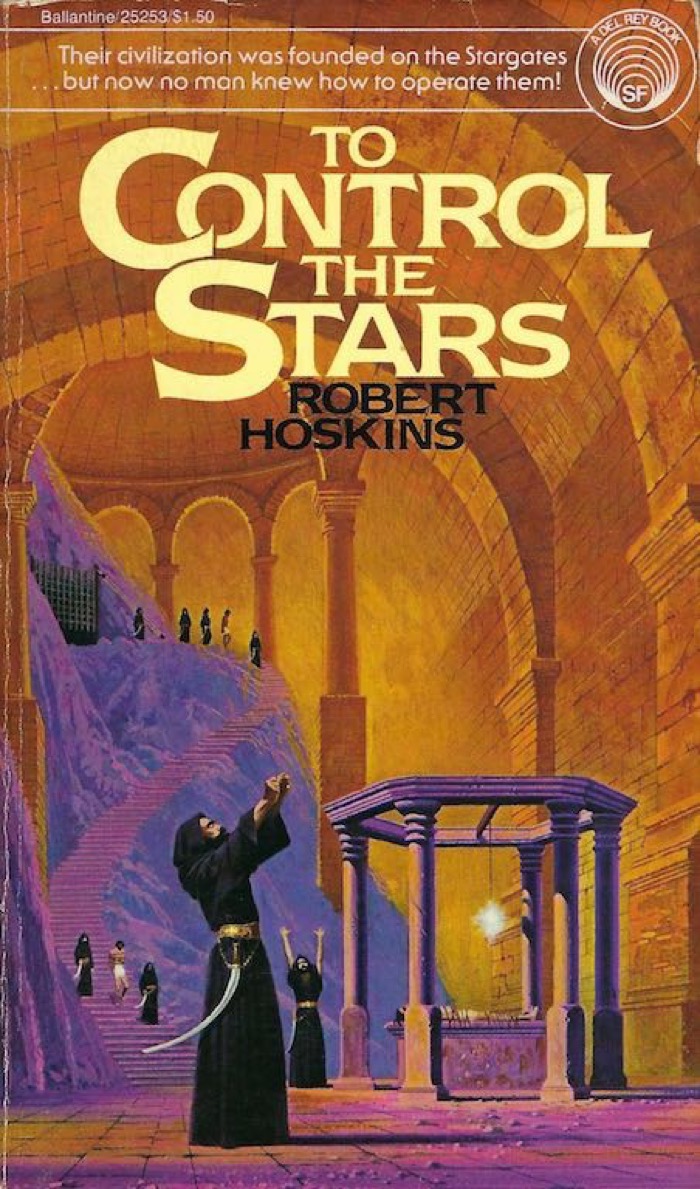To Control the Stars
Series: Stars 2
Reviewed date: 2017 Oct 3
Rating: 2
188 pages
This is the second book in the Stars series, but it stands alone well enough. On the planet Academy, Shan Eliot finishes his schooling and eagerly waits to find out what career the computer will assign to him. The computer assigns him a job with the Society for Hominidic Studies. Shan is confused. Hominidic studies? What is that?
It turns out that hominidic studies is a real thing: studying the native human-like races on uncontacted planets of the galaxy. Eons ago, the First Empire spanned the entire galaxy, and a million planets were linked together with stargates. But civilization fell, and in the Interregnum, knowledge of interplanetary travel and of the stargates was lost. Now, the Federation has recovered some of that knowledge. About three thousand planets are members of the Federation, and travel by stargate between them is commonplace. But there are still many thousands of uncontacted planets, with native populations at various levels of civilization. It is with these uncontacted peoples that the Society for Hominidic Studies concerns itself.
Shan starts off at the Society boot camp, where he learns the purpose for the Society: to contact nascent civilizations, and give them a kick in the pants, so to speak, to guide and accelerate their development. In a few hundred years, the Society hopes to help hundreds, maybe thousands, of worlds develop sufficiently to join the Federation. Any worlds that are advanced enough to join the Federation on their own, without help, are strictly off limits to the Society.
That struck me as odd. It's like the reverse of the Prime Directive from Star Trek. The Society can only interfere in primitive cultures, not in advanced ones. And it struck me as unethical and wrong: what gives the Society the right to interfere with and manipulate other worlds? A description of their methods cemented the wrongness of the Society: on one world named Sentosar, the Society decided that the people were too complacent, their society too stagnated.
"The problem with a stagnated society is twofold," said the lecturer. "One, to break the natives away from their easy life, forcing them to move north into areas of climate extremes; and two, to reintroduce hunting and make it an important means of supplementing the food ration. Temperature extremes will force them to adapt to constant change, while the hunt retains the basic elements of violence, of reacting to and planning for the expected and the unexpected, that will lead to necessary cultural growth. Eventually, to full membership in the Federation."
So the Society sent operatives to Sentosar to burn villages and force the natives to move away from the lush, temperate equatorial region and to live in the harsh, cold northern hills. The hard life would force the people to adapt and advance, rather than lie around on the beaches eating mangos and coconuts all day. Apparently.
Monstrous. The Society is monstrous.
Fortunately, it turns out I'm not the only one who noticed that. Shan did too. And the folks at the Society figured he would notice it, and that he would get his powerful uncle to do something about it, so they shipped Shan off on a "secret mission" in the dead of night, and left him for dead on the planet Alnia.
The natives on Alnia intend to execute him, but Shan realizes that the altar upon which they intend to execute him, is in fact a stargate. He manages to activate the stargate and escape.
He arrives on an unknown planet. He's rescued by the advanced inhabitants of the planet, who explain to him that they know the secrets of the stargates. But they want nothing to do with the stargates or with the Federation. Stargate travel, they explain, is what caused the First Empire to fall. Something about the stargates causes civilizations and societies to crumble and decline. The only way to endure is to remain isolated. They intend to leave the galaxy forever, just as soon as they send Shan back to his Federation.
Shan returns to the Federation, spends some time running from the bad guys who control the Society. He also stumbles his way to a death cult planet, where he serves a sentence of ten days' hard labor for the crime of laughing.
He contacts his powerful uncle, who helps him depose the bad guys running the Society. The Society returns to its original mission: studying, but not interfering with, uncontacted peoples on other worlds.
